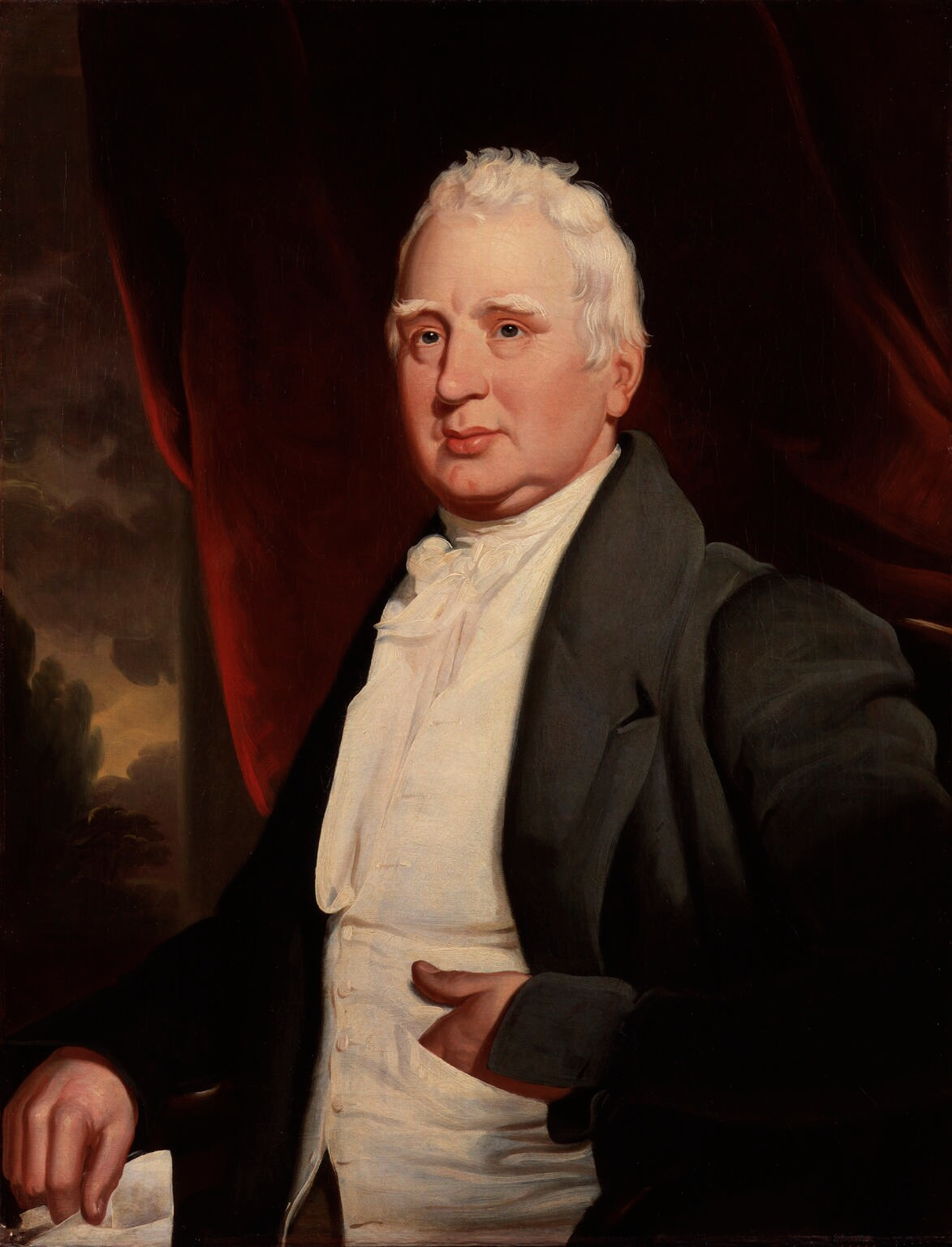“Men of integrity are generally pretty obstinate in adhering to an opinion once adopted.”
Quelle: Life and Adventures of Peter Porcupine (1796), P. 23.
William Cobbett war ein englischer Schriftsteller, Journalist, Verleger und radikaler, d. h. linksliberaler Politiker. Er war Herausgeber der Wochenzeitung Political Register und hatte von 1832 an bis zu seinem Tod einen Sitz im House of Commons. Als Schriftsteller veröffentlichte er unter dem Pseudonym Peter Porcupine. Wikipedia

“Men of integrity are generally pretty obstinate in adhering to an opinion once adopted.”
Quelle: Life and Adventures of Peter Porcupine (1796), P. 23.
Political Register, LXXV, pp. 364-365 (4 February 1832).
Political Register (15 March 1806), quoted in Karl W. Schweizer and John W. Osborne, Cobbett and His Times (Leicester: Leicester University Press, 1990), p. 11.
Political Register (11 January 1806), quoted in Karl W. Schweizer and John W. Osborne, Cobbett and His Times (Leicester: Leicester University Press, 1990), p. 15.
Political Register (27 October 1804).
Quelle: The Autobiography of William Cobbett (1933), Ch. 2, p. 28.
Letter to Wilberforce, Political Register (30 August 1823), quoted in G. D. H. Cole, The Life of William Cobbett (Greenwood, 1971), p. 259.
Letter to William Windham (27 May 1802), quoted in J. C. D. Clark, English Society. 1688-1832. Ideology, Social Structure and Political Practice during the Ancien Regime (Cambridge: Cambridge University Press, 1985), pp. 89-90.
Quelle: The Autobiography of William Cobbett (1933), Ch. 12, pp. 185-186.
“To a Husband,” letter 4.
Advice to Young Men (1829)
Political Register (27 February 1802).
Speech http://hansard.millbanksystems.com/commons/1834/mar/21/free-trade-liverpool-petition-adjourned in the House of Commons on a petition in favour of free trade (21 March 1834).
Political Register (27 October 1804).
“To Mr. Benbow,” Political Register (29 November 1817).
“To Parson Malthus,” Political Register (8 May 1819).
“Perhaps there are none more lazy, or more truly ignorant, than your everlasting readers.”
“To a Father,” letter 5.
Advice to Young Men (1829)
Political Register (14 August 1819), quoted in Karl W. Schweizer and John W. Osborne, Cobbett and His Times (Leicester: Leicester University Press, 1990), p. 18.
“Sit down to write what you have thought, and not to think what you shall write.”
Page 180.
A Grammar of the English Language (1818)
Page 96.
A Grammar of the English Language (1818)
Quelle: The Autobiography of William Cobbett (1933), Ch. 8, p. 99.
Political Register (8 September 1804), quoted in Karl W. Schweizer and John W. Osborne, Cobbett and His Times (Leicester: Leicester University Press, 1990), p. 29.
“The Last Ten Years,” Political Register (4 January 1812).
Political Register (21 December 1816), quoted in Karl W. Schweizer and John W. Osborne, Cobbett and His Times (Leicester: Leicester University Press, 1990), p. 31.
Quelle: Life and Adventures of Peter Porcupine (1796), P. 59.
Porcupine’s Gazette, No. 799 (13 January 1800).
Political Register (10-17 July 1802), quoted in Karl W. Schweizer and John W. Osborne, Cobbett and His Times (Leicester: Leicester University Press, 1990), p. 8.
Letter 2.
Advice to Young Men (1829)
Political Register (20 April 1805), quoted in Karl W. Schweizer and John W. Osborne, Cobbett and His Times (Leicester: Leicester University Press, 1990), pp. 27-28, 71-72.
Quelle: Life and Adventures of Peter Porcupine (1796), P. 22.